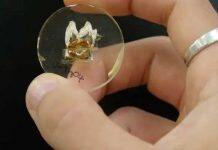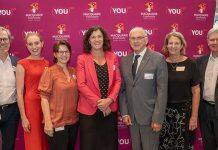A new speech pathology course at Charles Darwin University (CDU) will train more professionals to help Territorians with communication disabilities to better communicate and achieve life goals.


It comes as Speech Pathology Week, marked from 22 to 28 August, features events in the Northern Territory and across the country to highlight the theme – ‘Communication Is Everyone’s Right’.
More than one million Australians live with a communication disability and speech pathologists play a key role in supporting them to maximise their educational, health and social outcomes.
CDU Interprofessional Clinical Coordinator and Speech Pathology Australia NT Branch Chair, Yolande Burdekin, said the Top End was in dire demand of more speech pathologists to support clients with a communication disability.
“There is a significant shortage of speech pathologists in the Northern Territory. Waitlists are quite lengthy in both the public and private sectors. However, there can be an 18-month waiting period for some private practices,” Ms Burdekin said.
“CDU is playing a crucial role in helping meet some of this demand by rolling out the speech pathology course to train more clinicians.”
CDU already has students enrolled in the Bachelor of Health Sciences/Master of Speech and Language Therapy program, which offers students a dual qualification. A stand-alone master’s degree is available from 2022.
The courses are available for external and on-campus learning, offering flexibility for students to gain their qualifications to work in the allied health sector.
Ms Burdekin spoke at CDU’s Allied Health Collective networking event at the Casuarina Campus on 25 August to talk about career pathways to speech pathology and the different areas speech pathologists can work in.
“The practice of speech pathology in the Northern Territory is very small in comparison to the rest of the country,” she said.
“I want to share information about the diversity and scope of the work speech pathologists do and encourage young people to consider this as a profession.”
“Our purpose is to raise awareness for the profession and show the impact that communication disorders can have on people’s lives, as often communication disability goes unseen,” Ms Burdekin said.
“The evidence tells us that early intervention is most important and a lack of speech pathologists, not just locally but nationwide, is affecting children’s ability to get early intervention.”








































